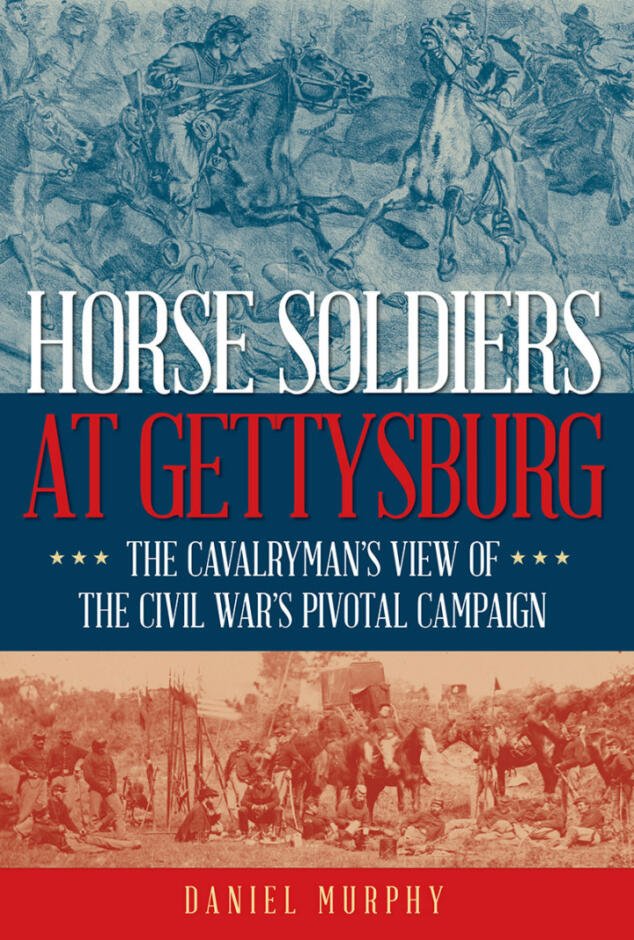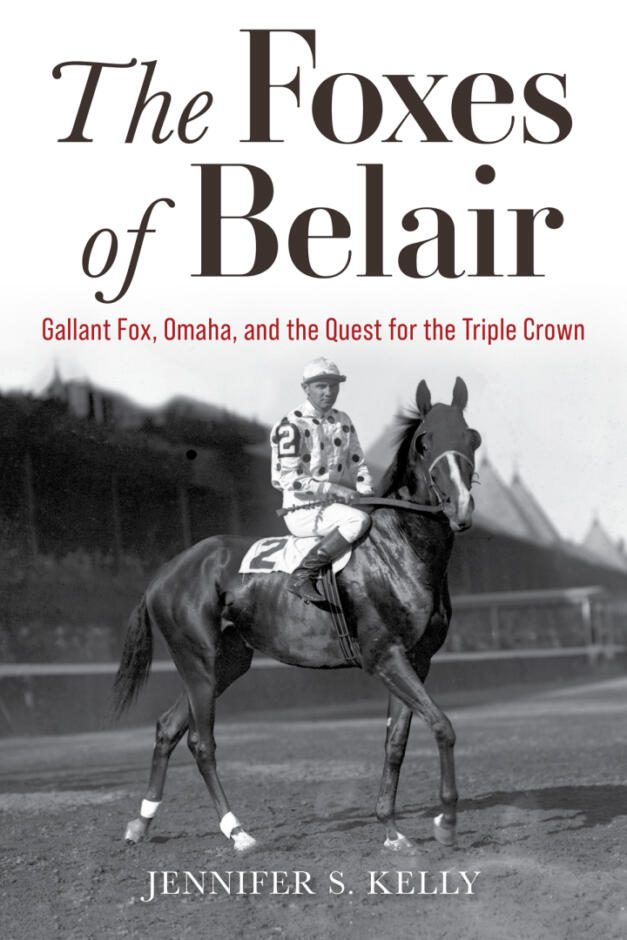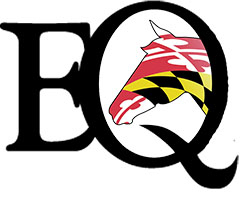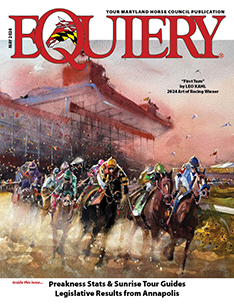first published in the July 2023 Equiery
 Horse Soldiers at Gettysburg by Daniel Murphy
Horse Soldiers at Gettysburg by Daniel Murphy
The Battle of Gettysburg may have been fought across Maryland’s northern borders, but the Gettysburg campaign led right through our state. Daniel Murphy’s book Horse Soldiers at Gettysburg: The Cavalryman’s View of the Civil War’s Pivotal Campaign, published by Stackpole Books, takes a unique look at the battle from the perspective of the people in the saddle.
The book cites several first-hand accounts of what it was like to serve in the cavalry as well as the day-to-day care needed to maintain the horses used in battle. Horse Soldiers at Gettysburg begins with the Battle of Brandy Station in Virginia and follows the Union and Confederate cavalries as they head north through Maryland and into Gettysburg. Murphy’s book finishes with General Lee’s retreat back through Maryland.
Murphy, who lives in Conyers, Georgia, is a classically trained fencer, avid equestrian and living historian. He has served as cavalry coordinator for several National Park Service films. Murphy has had articles appear in several magazines and journals. He is also the author of William Washington, American Light Dragoon: A Continental Cavalry Leader in the War of Independence.
This book is a great read for those interested not only in Civil War history but also in the horse’s contribution to military history.
 Self-Destruction by John W. Frece
Self-Destruction by John W. Frece
John W. Frece’s newest book, Self-Destruction: The rise, fall, and redemption of U.S. Senator Daniel B. Brewster, published by Apprentice House Press/Loyola Univeristy Maryland, is about just that… the rise, fall and redemption of Maryland’s Daniel B. Brewster. As a U.S. Senator, Brewster was the only Senator from south of the Mason-Dixon line to co-sponsor both the 1964 Civil Rights Act and the 1965 Voting Rights Act. Before politics, Brewster was a U.S. Marine fighting at Okinawa and even before that… he was a horseman.
Brewster was the handsome and well-educated scion of a wealthy and horsey Maryland family. The book recounts his trajectory through life, first as a war hero, political rising star and golden boy, then through his descent into alcoholism, broken marriages, electoral defeat, a bribery scandal and financial collapse. Finally, it describes how he eventually rehabilitates himself and regains some of his dignity and stature.
Although Frece’s book focuses on Brewster’s political career, which included being responsible for preserving the Maryland side of Assateague Island, there are mentions of his timber racing days as a jockey and owner, which include riding in the Maryland Hunt Cup, as well as other ties to Maryland’s racing community.
Frece is a former Maryland State House bureau chief for The Baltimore Sun and used several of Brewster’s papers at the University of Maryland’s Hornbake Library, war diaries and newspaper clippings, among scores of other research, to compile Self-Destruction. Brewster’s son Gerry L. Brewster, who was a member of Maryland’s House of Delegates, also assisted in research having written his senior thesis at Princeton University on his father.
A great read for anyone interested in Maryland history, politics and horses.
 The Foxes of Belair by Jennifer S. Kelly
The Foxes of Belair by Jennifer S. Kelly
The Foxes of Belair: Gallant Fox, Omaha, and the Quest for the Triple Crown, published by The University Press of Kentucky, is full of both Thoroughbred racing history and Maryland history. This book, by Jennifer S. Kelly, author of Sir Barton and the Making of the Triple Crown, examines the early lives of Triple Crown winners Gallant Fox and Omaha at the Belair Stud, as well as how their legacies live on in racing today.
Belair Stud was where the colonial era Maryland Governor Samuel Ogle brought the first Thoroughbred horses to America and is known as “The Cradle of American Racing.”
The Foxes of Belair is also about Belair Stud’s founder, William Woodward, and how he helped shape the American Thoroughbred industry, and Maryland’s, through the Belair Stud breeding program. Woodward was the scion of a New York banking family that had made its wealth selling textiles to the Confederate Army. He founded the New York Cotton Exchange and was one of the original directors of the New York Federal Reserve. His horses won not only every major stakes race in the country at the time, but also several important races in England. Woodward was elected to the Jockey Club in 1917, and he was on the cover of the August 7, 1939 issue of Time magazine.
Today, the Belair mansion house and the stables are owned by Prince George’s County as a museum and open to the public.
In addition to being an author, Kelly is a proof reader and editor. She writes BackTracks, a monthly column for The Racing Biz on historic horses bred in the Mid-Atlantic region and also has written for Past the Wire.
The Foxes of Belair is great read for racing fans and Maryland history fans alike!
 War’s Over, Come Home by Patrick Smithwick
War’s Over, Come Home by Patrick Smithwick
Most Maryland equestrians know Patrick Smithwick based on his longstanding ties to the steeplechase community and as the author of Racing My Father, Flying Change and Racing Time. Where his previous books have highlighted his family’s involvement with the racing industry, his latest book, War’s Over, Come Home: A Father’s Search for His Son, Two-Tour Marine Veteran of the Iraq War, published by TidePool Press, takes on a completely different topic: post-war life for soldiers suffering with PTSD.
Just as with his previous books, Smithwick writes straight from the heart in a very personal manner, sharing his and his son Andrew’s story in a narrative style that makes readers feel they are also part of the story. The book begins on a summer day with Smithwick and his son heading to a steeplechase meet much as the two had done year after year, but quickly dives into the past decade of Smithwick’s relationship with his son and his constant search to keep in touch with Andrew.
The book is also full of family photos including an image of Smithwick and Andrew out hacking when Andrew was a child. Smithwick’s caption tells just as much of their story and relationship as the book itself: “Every Sunday, 1:00 p.m. sharp, whether it was snowing, blowing a gale, or red hot, Andrew and I jumped in our old pick up, drove to his grandmother Dee Dee’s, and went out on a long ride.”
Smithwick was raised in Monkton where he still lives on the family farm with his wife Ansley. In addition to his previous books, Smithwick has written articles for The Maryland Horse, Horsemen’s Journal, The Chronicle of the Horse and The Equiery. A lifelong horseman, Smithwick rode steeplechase races up and down the east coast including the Maryland Hunt Cup. He is a trainer and owner of steeplechase and flat track horses.
War’s Over, Come Home can be a difficult read, but for anyone who loves Smithwick’s writing style, you will want to read this one too.













